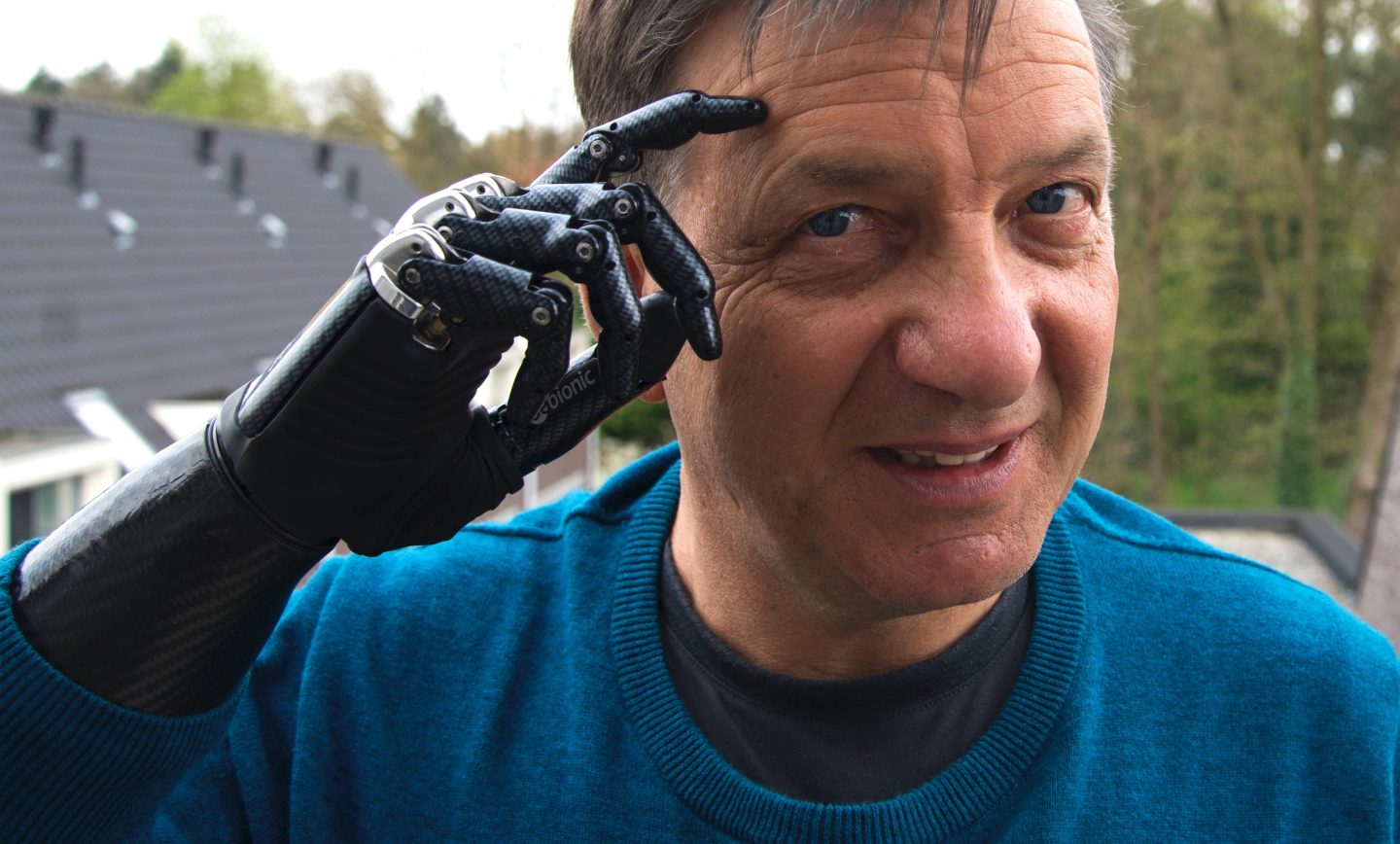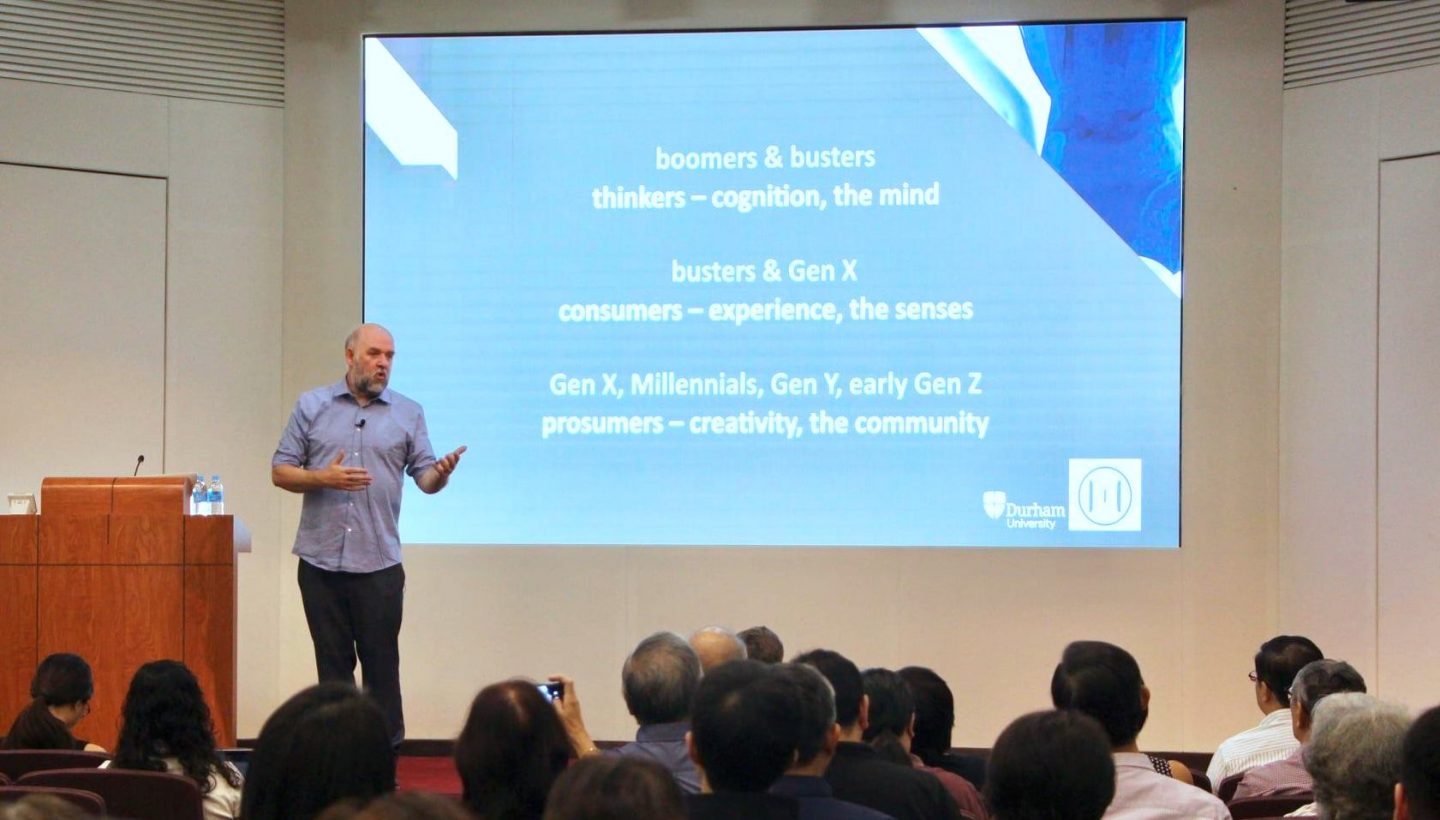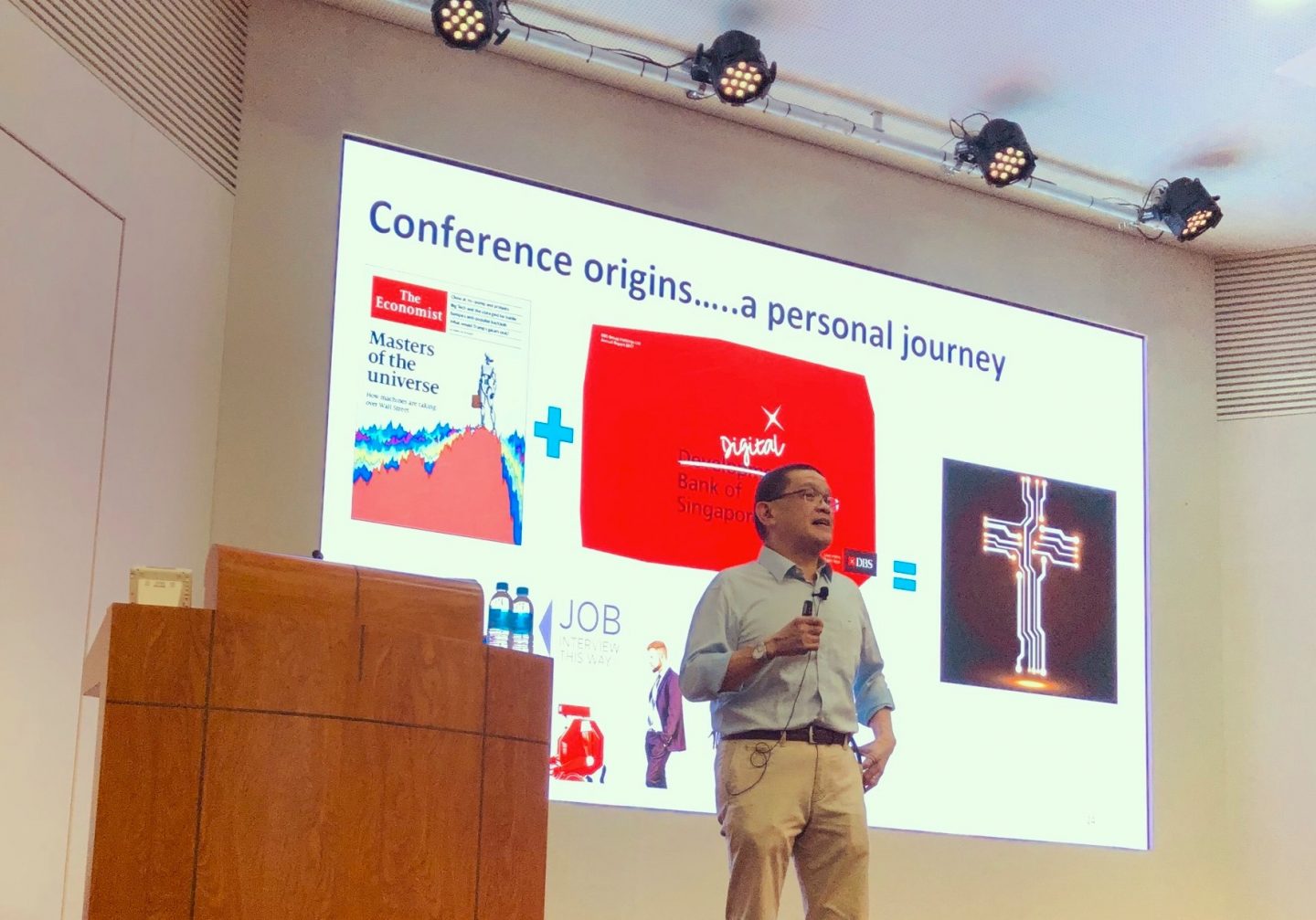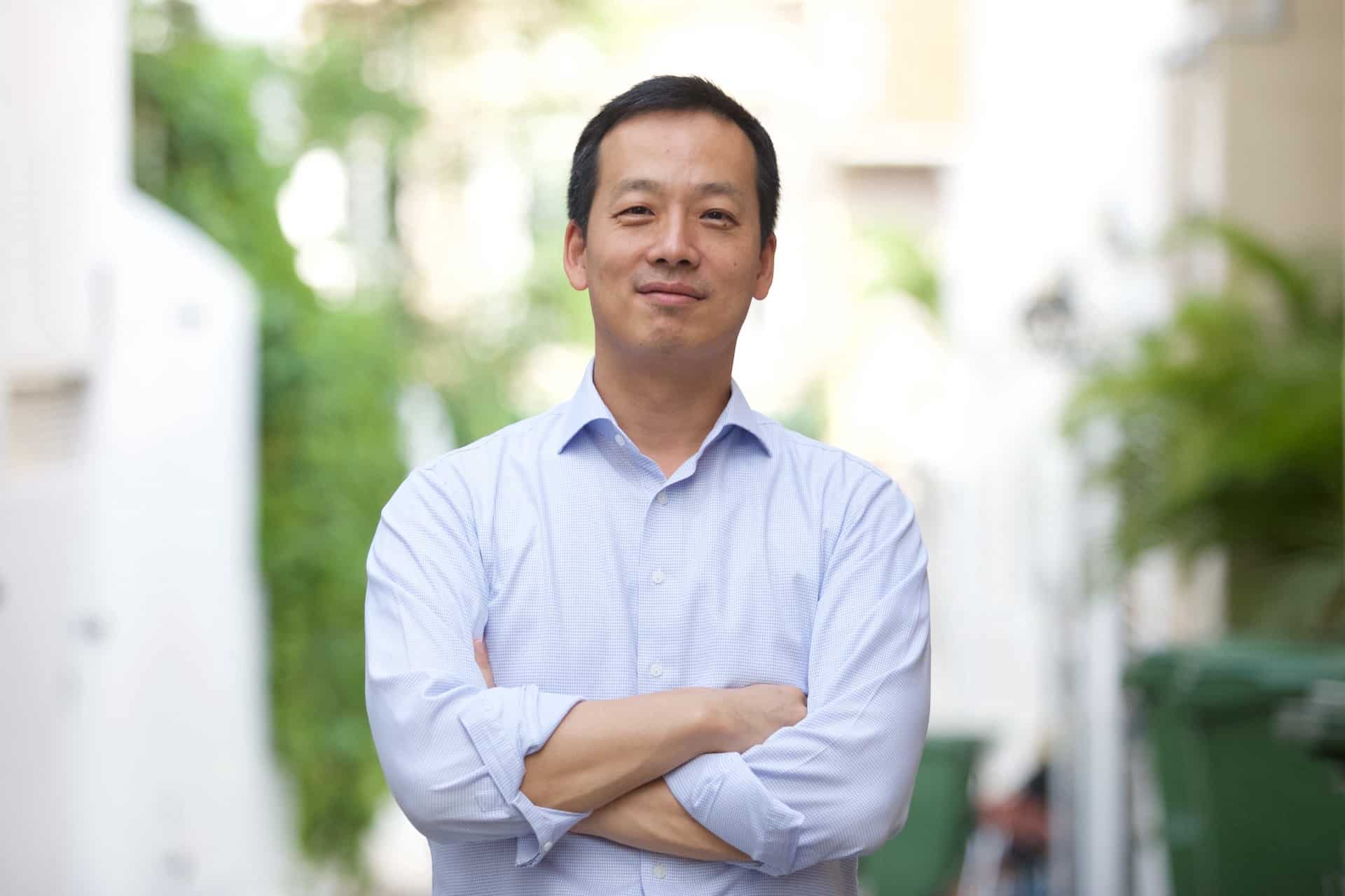“Throw ourselves into the digital world because that’s where God is”: ChristianX 2019
by Tan Huey Ying // October 23, 2019, 3:35 pm

In Switzerland, it is now legal to replace a limb with a robotic prosthetic as elective surgery. Photo by Henk Mul on Unsplash
“What’s the difference between wearing glasses or hearing aids and having a robotic arm?” Rev Dr Pete Philips, Director at Durham University’s Centre for Digital Theology (CDT), asked his audience at the recent ChristianX 2019: The Church in a Digital World conference.
Held last weekend at Bethesda Katong Church, almost 200 people attended the two-day conference which considered the rapid advances in technology and its implications – both opportunities and challenges – for Christians today.
“In Switzerland, it is now legal to replace a limb with a robotic prosthetic – and do that as elective surgery,” said Dr Philips in the opening session, which included an introduction of the latest tech trends and a framework for thinking about the digital world, its influence and impact on society.

Rev Dr Pete Philips presenting the demographics of digital users. There was a wide range of attendees at the conference, from a digital ministry intern to retirees and church board members. Photo by Bible Graduate School of Theology.
There’s a sense now, that the internet is embodied and embedded in our physical reality, said Dr Philips. Cyberspace, for example, was a place you could go to; it was out there in a world that wasn’t really a part of any physical space.
Tech is making what should be theoretical into something mainstream and real.
Recalling the days where an internet connection was dependent on a physical telephone line with a dial-up modem, Dr Philips said: “We went online. And without access to that cable, you came offline.
“But not today. Today we are simultaneously online and offline,” he maintained. “At the same I’m speaking – offline – my phone is there waiting to be answered. We can’t get away because the online and offline are now merged.”
Tech is making what should be theoretical, such as science, into something mainstream and real, Dr Philips asserted. It is no longer a discussion about the superpowers of countries and leaders, but one about technology and supercomputers. We must consider what this means personally – in our relationships, our family and even our walk with God.
Blade Runner
In fact, the idea for the conference was born out of a personal reflection on the impact of tech.
Standing in front of a large LCD screen that covered the entire wall of Bethesda Katong Church’s main worship hall, Khoo Teng Cheong spoke about how he started his exploration of this topic.

Khoo Teng Cheong, one of the conference organisers, spoke about how the conference had been birthed out of a personal journey after reflecting on his career in banking. Photo by Bible Graduate School of Technology.
Having recently retired from a 30-year career in the banking industry, Khoo was finally able to address the question that he had been keeping at the back of his mind for a long time.
“We think that technology is going to get rid of all the low-value monotonous jobs but the reality is that even higher value-added functions are being taken over by supercomputers – like trading, which is probably the most sophisticated function in banking.”
How does technology impact me as a Christian? And what about Christian churches and communities?
As head of strategy in a local bank, Khoo was part of the leadership group which harnessed the power of technology to overhaul operations and improve customer experience, transforming the bank into one that has won global accolades.
And in his last role, he was involved in assessing the impact of digital forces on the bank’s employees.
“We had to prepare these people, for them to function well and to be happy in their jobs in the near future,” explained Khoo, who is also the chairman of Bethesda Katong Church.
After retirement, Khoo’s reflections on his career soon led him to ask: How does technology impact me as a Christian? And what about Christian churches and communities?
His search led him to Durham University’s CDT and Dr Philips, where the two men connected immediately over their shared passion for Blade Runner, a science fiction film from the 1980s.
Cyberspace, sacred space
Dr Philips, whose perspective on technology centres on the principle of God’s omnipresence extending into the digital space, stated clearly: “Technology is part and parcel of contemporary culture, a part of the imago Dei within us. It is not something that’s foisted upon us but actually part of living out who God has made us to be.”
If we believe that “the earth is the Lord’s, and everything in it” (Psalm 24:1), then where is God in technology?
Noting that there is a subtle shift away from embracing digital advancement in Christian circles, Dr Philips asked: If we believe that “the earth is the Lord’s, and everything in it” (Psalm 24:1), then where is God in technology?
The existentialist question for the Church remains, argues Dr Philips. Will it change in line with Singapore’s model of being a smart nation or will we be seen as “dinosaurs”?
Could cyberspace become a sacred space – a holy sanctuary where people encounter God? Is it possible that God is using Artificial Intelligence (AI), in the sense of all that is available through the outcomes of AI and machine learning? Or maybe we could even see computer science as a bearer of the message of God.
Enhance the digital space to make it more positive for humans; remove the addiction markers; bring ethics back into the discussion, challenged Dr Philips.
“Throw ourselves into the digital world because that is where God is.
“And if we think that God is not in the digital space, then we are contracting Him.”
“Could Big Data be something evangelical?” challenge visionaries Jeff Cheong and Dr Freddy Boey
We are an independent, non-profit organisation that relies on the generosity of our readers, such as yourself, to continue serving the kingdom. Every dollar donated goes directly back into our editorial coverage.
Would you consider partnering with us in our kingdom work by supporting us financially, either as a one-off donation, or a recurring pledge?
Support Salt&Light



